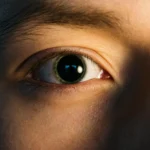The effect of stimulants on the brain and body is profound, altering brain chemistry in ways that can significantly impact mental health. Stimulants, such as cocaine, methamphetamine, and prescription medications like Adderall and Ritalin, are often used for their ability to increase alertness, energy, and focus. However, these substances can have dangerous consequences for mental well-being.
Understanding the effect of stimulants on brain function and mental health is crucial for those seeking recovery or looking to avoid the risks associated with their use.
How Stimulants Affect Brain Chemistry
The effect of stimulants primarily revolves around their impact on the brain’s dopamine system, which is crucial for regulating mood, motivation, and feelings of pleasure. Stimulants cause a surge in dopamine levels, creating intense feelings of euphoria, heightened energy, and increased concentration.
However, over time, this unnatural boost leads the brain to produce less dopamine naturally, causing dependency on the stimulant to achieve pleasure or feel normal. When the stimulant is not present, individuals may experience a “crash” with intense feelings of fatigue, depression, anxiety, and irritability.
The Mental Health Effects of Stimulants
While stimulants can temporarily boost mood and alertness, their long-term use can have significant consequences for mental health:
- Anxiety and Panic Attacks: The effect of stimulants on the brain includes increasing the release of stress hormones like norepinephrine, leading to heightened anxiety, restlessness, and even panic attacks.
- Depression: As natural dopamine production decreases, individuals may struggle with intense feelings of sadness, hopelessness, and lack of motivation, complicating the recovery process and potentially triggering further stimulant use to alleviate these negative emotions.
- Psychosis and Hallucinations: High doses or prolonged use of stimulants can result in stimulant-induced psychosis, which may involve hallucinations, delusions, and paranoia. This condition can mimic symptoms of severe psychiatric disorders like schizophrenia, delaying appropriate treatment.
- Cognitive Impairment: Long-term stimulant use can impair cognitive functions, including memory, decision-making, and impulse control, which can adversely affect daily functioning and quality of life.
- Sleep Disturbances: Stimulants disrupt normal sleep patterns, causing insomnia and poor sleep quality. Chronic sleep deprivation can exacerbate mental health issues, such as anxiety, depression, and cognitive impairment.
Strategies for Managing the Effect of Stimulants on Mental Health
If you or someone you know is dealing with the effects of stimulants on mental health, several effective strategies can help manage these impacts:
- Seek Professional Help: Consulting a mental health professional or addiction specialist is crucial to receiving a proper diagnosis and treatment plan. Therapy, medication, or a combination of both may be necessary to manage withdrawal symptoms and stabilize mental health.
- Engage in Therapy: Cognitive-behavioral therapy (CBT) and other psychotherapies can help address the underlying reasons for stimulant use, develop coping mechanisms, and strengthen resilience against cravings and triggers.
- Medication Management: Medications like antidepressants or antipsychotics may help manage the mental health symptoms associated with stimulant withdrawal or stimulant-induced psychosis.
- Adopt Healthy Lifestyle Changes: Engaging in regular physical activity, maintaining a balanced diet, and practicing mindfulness through meditation or yoga can help restore natural dopamine levels and enhance well-being.
- Build a Support Network: Surround yourself with supportive friends, family, or peer groups. Support groups like 12-step programs can provide encouragement, accountability, and a sense of community.
- Focus on Sleep Hygiene: Develop a healthy sleep routine with regular sleep and wake times, a calm sleep environment, and avoid stimulants before bedtime.
- Explore Holistic Therapies: Complementary therapies like acupuncture, massage therapy, or art therapy can help reduce stress and improve emotional regulation.
The effect of stimulants on mental health can be severe, but recovery is achievable with the right strategies and support systems. Understanding the effects of stimulants on brain function and mental health can empower individuals to take proactive steps toward healing and recovery.
If you or someone you know is struggling with stimulant use, consider seeking help from a healthcare provider. With the right approach, a healthier future is possible.




